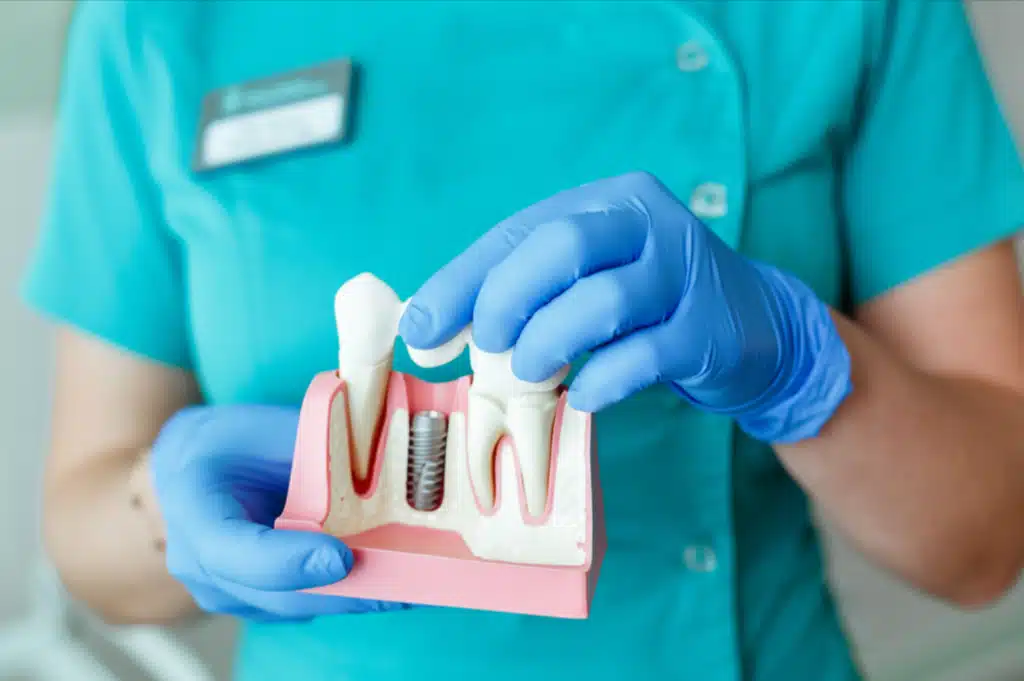How Long Do Dental Implants Last?
Are you considering dental implants? Dental implants have gained popularity as a long-term solution for missing teeth. But how long do dental implants actually last? In this article, we will explore the lifespan of dental implants and provide you with all the information you need to know. Whether you are considering getting dental implants or simply curious about their longevity, read on to discover more.
Table of Contents
Introduction
Dental implants have revolutionized the field of dentistry by providing a reliable and durable solution for missing teeth. Unlike traditional dentures or bridges, dental implants are designed to mimic the structure of natural teeth, offering a more permanent and functional alternative. But how long can you expect your dental implants to last? Let’s dive into the details.
What Are Dental Implants?
Dental implants are artificial tooth roots made of biocompatible materials, typically titanium. They are surgically placed into the jawbone to provide a stable foundation for replacement teeth. The implant fuses with the jawbone through a process called osseointegration, creating a sturdy base to support a dental crown, bridge, or denture.
The Lifespan of Dental Implants
Dental implants have an impressive lifespan and can last for several decades with proper care. In fact, studies have shown that the success rate of dental implants after ten years is around 95%. With advancements in implant technology and oral care, it is not uncommon for dental implants to last a lifetime.
Factors Affecting Implant Longevity
Several factors can influence the lifespan of dental implants:
Oral Hygiene: Maintaining good oral hygiene practices, such as regular brushing, flossing, and dental check-ups, plays a crucial role in the longevity of dental implants.
Tobacco Use: Smoking and tobacco use can increase the risk of implant failure and decrease their lifespan.
Overall Health: Certain health conditions, such as uncontrolled diabetes or autoimmune disorders, can affect the success of dental implants.
Bone Quality: Sufficient bone density and volume are essential for successful implant placement and long-term stability.
Implant Placement: The skill and experience of the dental professional performing the implant procedure can impact the longevity of dental implants.
Dental Implant Procedure
The dental implant procedure typically involves several stages:
Consultation and Treatment Planning
During the initial consultation, your dentist will evaluate your oral health, examine your jawbone, and discuss your treatment options. A comprehensive treatment plan will be developed based on your specific needs and goals.
Preparing for Dental Implant Surgery
Before the implant surgery, your dentist may require additional dental treatments, such as tooth extraction or bone grafting, to ensure the success of the implant procedure. It is important to follow any pre-operative instructions provided by your dentist.
The Dental Implant Placement Process
The actual implant placement is performed under local anesthesia to ensure your comfort during the procedure. Your dentist will make an incision in the gum tissue to expose the jawbone and carefully place the implant into the predetermined position. Afterward, the gum tissue is sutured, and a temporary crown or denture may be placed.
Post-Operative Care and Recovery
Following the implant placement, it is crucial to follow your dentist’s instructions for post-operative care. This may include taking prescribed medications, avoiding hard or sticky foods, and maintaining proper oral hygiene. The recovery period is essential for osseointegration to occur, as the implant integrates with the jawbone.
Maintaining Dental Implants
Proper maintenance and regular dental visits are vital for the longevity of your dental implants. Here are some essential tips for maintaining your implants:
Brush your teeth at least twice a day with a soft-bristle toothbrush.
Use an antimicrobial mouthwash to reduce the risk of infection.
Floss daily to clean between the teeth and implants.
Avoid chewing on hard objects or biting down with excessive force.
Visit your dentist regularly for check-ups and professional cleanings.
Common Misconceptions about Dental Implants
There are a few misconceptions surrounding dental implants. Let’s address some of the most common ones:
Implants are painful: The implant procedure is typically performed under local anesthesia, ensuring a comfortable experience. Any discomfort during the recovery period can be managed with prescribed pain medications.
Implants are noticeable: Dental implants are designed to blend seamlessly with your natural teeth, providing a natural and aesthetic appearance.
Implants require special care: Dental implants can be cared for just like natural teeth, with regular brushing, flossing, and dental check-ups.
Advantages of Dental Implants over Other Treatments

Dental implants offer several advantages over other tooth replacement options:
Durability: Dental implants are built to last and can withstand daily wear and tear.
Improved Functionality: Unlike dentures, implants restore biting and chewing functions to near-natural levels.
Preservation of Bone Health: Implants stimulate the jawbone, preventing bone loss and maintaining facial structure.
Enhanced Confidence and Self-Esteem: Dental implants provide a natural-looking smile, boosting confidence and self-esteem.
Potential Complications and Risks
While dental implants have a high success rate, complications can occur in rare cases. Some potential risks include:
Infection: Infection around the implant site can compromise the success of the implant. Proper oral hygiene and regular dental visits can minimize this risk.
Implant Failure: Factors such as poor bone quality, smoking, or uncontrolled medical conditions can contribute to implant failure. Consulting with an experienced dentist and following their recommendations can help reduce this risk.
Nerve Damage: In rare instances, nearby nerves may be damaged during the implant placement process. This can cause temporary or permanent numbness or tingling. Your dentist will carefully assess the placement to minimize this risk.
Alternative Options for Missing Teeth
Dental implants may not be suitable for everyone. In such cases, alternative options for replacing missing teeth include:
Dentures: Removable prosthetic teeth that can replace multiple missing teeth.
Dental Bridges: Fixed appliances that bridge the gap created by missing teeth, using adjacent teeth as support.
Partial Dentures: Removable prosthetic teeth that replace a few missing teeth while preserving the remaining natural teeth.
Your dentist will evaluate your oral health and discuss the most appropriate treatment option for you.
Conclusion
In conclusion, dental implants offer a long-term solution for missing teeth. With proper care and maintenance, dental implants can last for several decades, providing durability and functionality. Factors such as oral hygiene, overall health, and implant placement affect the lifespan of implants. By following good oral hygiene practices and seeking regular dental care, you can maximize the longevity of your dental implants.
FAQ
How long does the dental implant procedure take?
The duration of the dental implant procedure varies depending on individual cases. In general, it can take several months, including the healing and osseointegration period.
Are dental implants expensive?
Dental implants are considered a long-term investment in your oral health. While the initial cost may be higher than other tooth replacement options, their durability and functionality make them a cost-effective choice in the long run.
Can anyone get dental implants?
Not everyone is a suitable candidate for dental implants. Sufficient bone density and overall oral health are crucial for the success of the implant procedure. Your dentist will evaluate your specific situation to determine if dental implants are the right choice for you.
Is the dental implant procedure painful?
The dental implant procedure is typically performed under local anesthesia, ensuring minimal discomfort during the procedure. Some discomfort during the recovery period can be managed with prescribed pain medications.
Can dental implants be done in one day?
In some cases, dental implants can be done in a single day with the use of advanced implant techniques such as immediate loading implants. However, this option is not suitable for everyone and requires careful consideration by your dentist.



